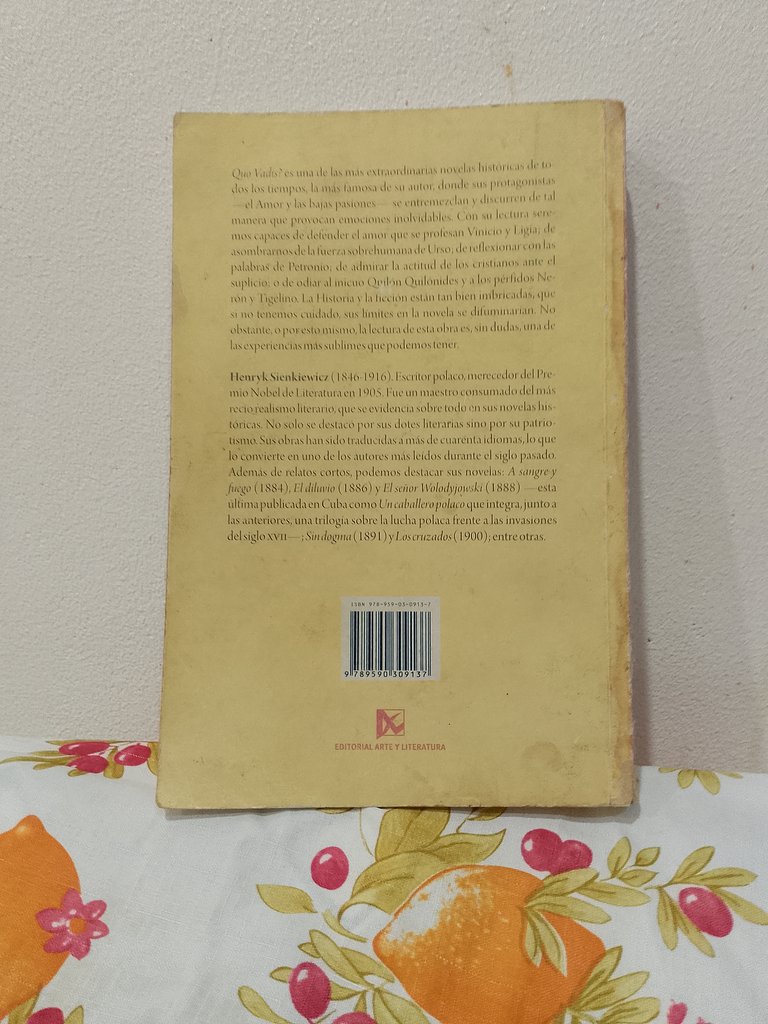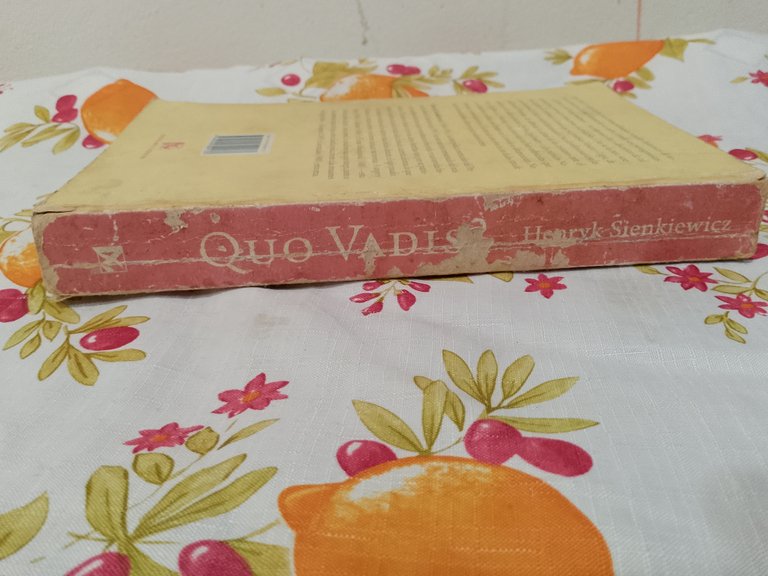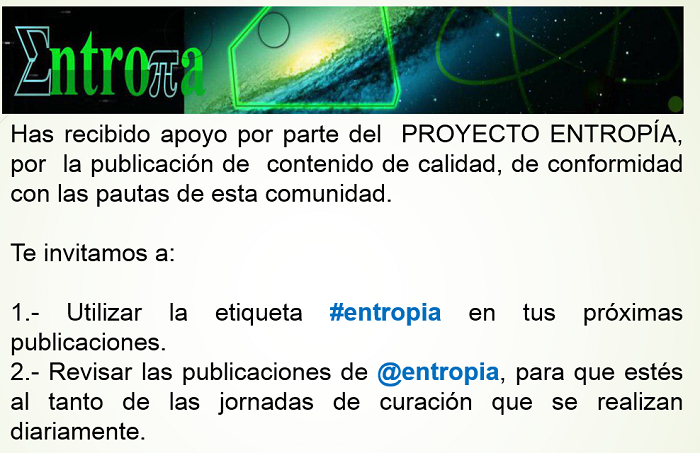Hello everyone, nice day for book lovers who are traveling through the blockchain at this time.
On this occasion I want to bring you closer to what turns out to be my favorite novel, since I was a teenager.Wait, ¿where are you going? Stay with me for a few seconds and give me the opportunity to put a literary gem before your eyes.

My sister @elisabethswan gave me the novel Quo Vadis in two volumes. I never learned to correctly pronounce the name of its author, a Polish writer, but I can write it: Henryk Sienkiewicz.
—¿What does Quo Vadis mean? —I asked my sister as soon as I had it in my hands.
—It is a Latin phrase that means ¿Where are you going?
And I don't remember if he added anything else, because I ran to get lost inside those pages that, I didn't know it yet, but were going to completely shake my heart.



Although Quo Vadis is considered historical literature, it is not possible to extract from it the style and language of a romantic novel. Its author achieves a perfect mix between both plots: the one that shows fragments of a bloody universal story and the plot of love.
Sienkiewicz places his narrative in ancient Rome, right during the reign of Nero, a cruel and unbalanced emperor who was capable of burning his own city in one of his many deliriums. Let us add to this that he felt infinite contempt for the followers of the Christian faith, which made him persecute them, trap them and decree upon them the worst scenarios of torture and death.
In the midst of chaos, blood and flames, are the protagonists of Quo Vadis: Vinicius and Ligia.
Vinicius was a Roman patrician, with a considerable fortune and a favorable political situation within the emperor's narrow circle.
Ligia, on the other hand, was a Christian princess, faithful to her beliefs and the teachings she received.
When the young patrician, accustomed to possessing everything he wanted, sees her for the first time, he is so admired by her beauty that he tries to make her his at any price, but time and again the maiden escapes from his hands, always supported by Ursu, guardian and protector, who had a strength never seen before.
Despite his initial wildness and bad intentions, Vinicio's character experiences an internal change, a quick and visible transformation, due to the real love he discovers he feels for Ligia. When he accepts this overwhelming truth, it is almost impossible for him to find the girl, who was escaping and hiding, along with her people, from the emperor's cruel persecution.
For that moment, Sienkiewicz shows us a maddened and bloodthirsty Nero, who seems to have no limits. He crucifies and throws Christians into the sands of the Colosseum, children, women, the elderly, there is no mercy for any, to be devoured by hungry lions, accusing them of being the authors of the burning of Rome. However, he himself had given the order to his men days before, because he wanted to see real flames devouring everything, in the absurd attempt to seek inspiration for his poetry. And because, in his highest delirium, he began to hate the city he had previously loved and wanted to build a completely new one, on its ashes.

Quo Vadis has a descriptive and rich narrative, at times passionate and emotional, at others heartbreaking and sad, which keeps the reader in an atmosphere of romance, action, danger and even deep reflections on “good and evil.” That is why here we find much more than a historical novel.
Don't be left curious to know what happened to Vinicio and Ligia. Did she die like so many other followers of Christ? Could he save her? At what crucial moment in the novel and to which character is the phrase Quo Vadis, which gives its name to the novel, said?

I invite you to give it a chance and, if you wish, return to my publication later and tell me your opinion in a comment.

This post was written without the use of AI. The images belong to me and the banners were designed in Canva.
English is not my native language, so I used Google’s free translator to make this translation. I apologize for any possible grammatical and agreement errors.
Thank you for visiting my blog. I hope you liked it and that you come back soon. I will be waiting for you. ¿Will you come back?

Hola a todos, lindo día para los amantes de los libros que a esta hora transitan por la blockchain.
En esta ocasión quiero acercarlos a la que resulta ser mi novela favorita, desde que era una adolescente. Espera, ¿a dónde vas? Quédate conmigo unos segundos y dame la oportunidad de poner una joya literaria ante tus ojos.

Mi hermana @elisabethswan me regaló la novela Quo Vadis, en dos tomos. Jamás aprendí a pronunciar de manera correcta el nombre de su autor, un escritor polaco, pero sí puedo escribirlo: Henryk Sienkiewicz.
—¿Qué significa Quo Vadis? —pregunté a mi hermana apenas lo tuve en mis manos.
— Es una frase en latín que significa ¿A dónde vas?
Y no recuerdo si agregó algo más, porque corrí a perderme dentro de aquellas páginas que, aún no lo sabía, pero iban a estremecerme por completo el corazón.



Aunque Quo Vadis es considerada como literatura histórica, no es posible arrancarle el estilo y el lenguaje de una novela romántica. Su autor logra una mezcla perfecta entre ambas tramas: la que muestra fragmentos de una historia universal sangrienta y la trama del amor.
Sienkiewicz ubica su narración en la antigua Roma, justo durante el reinado de Nerón, un emperador cruel y desequilibrado que fue capaz de quemar su propia ciudad en uno de sus tantos delirios. Añadamos a esto que sentía hacia los seguidores de la fe cristiana un desprecio infinito, lo que le hizo perseguirlos, atraparlos y decretar sobre ellos los peores escenarios de tortura y muerte.
En medio del caos, de la sangre y las llamas, están los protagonistas de Quo Vadis: Vinicio y Ligia.
Vinicio era un patricio romano, con una fortuna considerable y una situación política favorecedora dentro del círculo estrecho del emperador.
Ligia, en cambio, era una princesa cristiana, fiel a su creencia y a las enseñanzas recibidas.
Cuando el joven patricio, acostumbrado a poseer todo lo que deseaba, la ve por primera vez, queda tan admirado de su belleza que intenta hacerla suya a cualquier precio, pero una y otra vez escapa la doncella de sus manos, respaldada siempre por Ursu, guardián y protector, que contaba con una fuerza nunca antes vista.
A pesar de su inicial desenfreno y malas intenciones, el personaje de Vinicio vive un cambio interno, una transformación pronta y visible, a causa del amor real que descubre sentir por Ligia. Cuando acepta esta contundente verdad, ya le es casi imposible encontrar a la muchacha, que escapaba y se ocultaba, junto a su pueblo, de la cruel persecución del emperador.
Para ese momento, Sienkiewicz nos muestra a un Nerón enloquecido y sediento de sangre, que no parece tener límites. Crucifica y lanza cristianos a las arenas del Coliseo, niños, mujeres, ancianos, no hay piedad para ninguno, para ser devorados por los leones hambrientos, acusándolos de ser los autores del incendio de Roma. Sin embargo, él mismo había dado la orden a sus hombres días antes, pues deseaba ver llamas reales devorándolo todo, en el intento absurdo de buscar inspiración para su poesía. Y porque, en su más alto delirio, comenzaba a odiar a la ciudad que antes había amado y deseaba construir una totalmente nueva, sobre sus cenizas.

Quo Vadis tiene una narrativa descriptiva y rica, a momentos apasionada y emotiva, otras tantas desgarradoras y tristes, lo que mantiene al lector en una atmósfera de romance, acción, peligro e incluso reflexiones profundas sobre “el bien y el mal”. Es por eso que aquí encontramos mucho más que una novela histórica.
No te quedes con la curiosidad de saber qué sucedió con Vinicio y Ligia. ¿Murió ella como otros tantos seguidores de Cristo? ¿Pudo salvarla él? ¿En qué momento crucial de la novela y a cuál personaje se le dice la frase: Quo Vadis, que da nombre a la novela?

Te invito a darle la oportunidad y, si lo deseas, regresa luego a mi publicación y me cuentas en un comentario tu parecer.

Este post fue redactado sin el uso de IA. Las imagenes me pertenecen y los banners fueron diseñados en Canva.
Gracias por pasar por mi blog. Deseo que te haya gustado y que regreses pronto. Estaré esperando por ti. ¿Volverás?
 |  |
|---|
 |  |
|---|
 |  |
|---|
 |  |
|---|
 |  |
|---|






